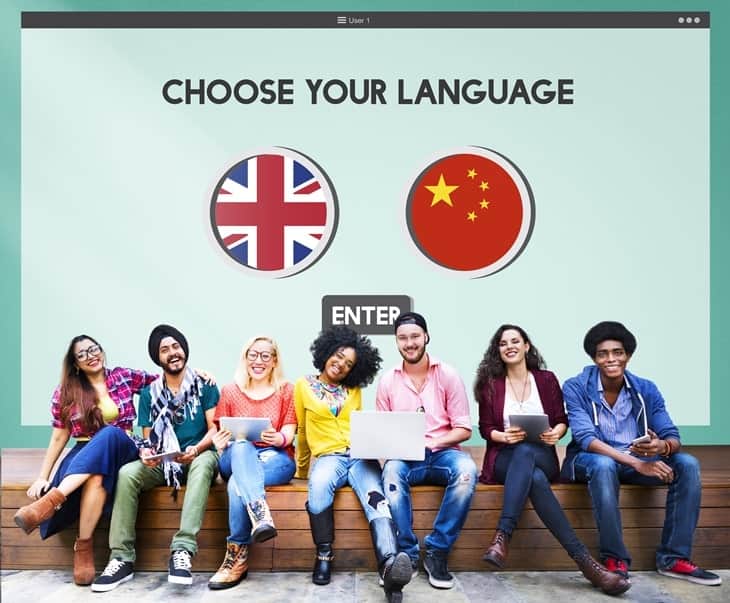Localisation is crucial for businesses looking to expand globally and connect with broader audiences worldwide. Adapting your website content and online assets into multiple languages through professional localisation services can significantly boost international engagement, search visibility, conversions and sales.
Introduction to Website Localisation Services
What is Localisation and Why is it Important?
Companies that focus efforts on localisation can:
- Connect with broader audiences beyond their home country and language. Localisation allows you to appeal to entirely new demographics that were previously untapped due to language barriers.
- Overcome language barriers that hinder engagement with foreign visitors. By providing content in their native tongue, you remove obstacles to connecting with potential customers abroad.
- Build trust and credibility by showing commitment through localised websites and content. Customers are more likely to buy from brands that speak to them in their language and show an investment in their market.
- Enhance search visibility and findability in target countries. Localisation optimises websites for better performance in international SEO results.
- Boost conversions and sales by serving content in the local language. Visitors are more inclined to convert when they can interact in their mother tongue.
In essence, localisation demonstrates an understanding of the unique needs of different cultures and tailoring accordingly. It shows that you see value in foreign markets and are willing to go the extra mile to cater to their preferences.
Differences between Translation and Localisation
How Website Localisation Drives Business Growth
Expanded Global Reach
- Tap into markets with language needs other than your own. You can engage with more regions.
- Cater to foreign customer preferences and expectations. Show customers you understand their local needs.
- Build an international customer base for revenue growth. Draw in new segments from different countries.
Increase International Conversions
- Over 50% of consumers spend more time on websites in their own language. They engage better with localised sites.
- 40% of web users will not buy if content is not in their language. Localisation can make or break conversions.
- 42% are more likely to purchase from localised sites. They feel better understood.
Enhance Local Search Visibility
- Target foreign language keywords through SEO. Use locally optimised keywords.
- Improve ranks in local search engine result pages. Outperform competitors lacking localisation.
- Adapt site architecture for better indexing. Make content more discoverable.
Create Relevant Experiences
- Resonate more deeply through cultural nuances. Show you understand the culture.
- Deliver content tailored to local interests. Align with what each market cares about.
- Provide support and information tuned to regional needs. Address their pain points.
Localisation Improves Key Business Metrics
Localisation has a measurable impact on key performance indicators. Here are some benefits reported by companies that localised their websites:- 388% increase in international traffic
- 3x growth in leads from global markets
- 62% rise in foreign customer acquisitions
- 29% faster international expansion
- 45% more revenue from overseas markets
Driving Successful Website Translation Outcomes
Localising a website is complex, requiring expertise, resources and cross-department collaboration. Working with a professional localisation provider offers many advantages to ensure success:
Linguistic Skills and Human Translators
- Access to native linguists ensures high-quality adaptation into multiple languages.
- Human expertise identifies nuances automated translation misses.
Cultural Knowledge
- An understanding of foreign cultures allows appropriate customisation so content resonates.
- Insights into traditions, values and preferences in each market.
Efficiency
- Advanced localisation technology like CAT tools speed execution while optimising costs.
- Tight integration between translators, processes and technology.
Project Management
- End-to-end project management makes the process seamless from translation to publication.
- On-time, on-budget delivery of multi-language websites.
Ongoing Optimisation
- Continual localisation of fresh content and iterations to boost performance.
- Up-to-date translations synchronised with new product features and content.
Compliance
- Meeting legal and regulatory requirements through authenticated document translations.
- Avoiding risks associated with non-compliance in foreign jurisdictions.
Cultural Consulting
- Guidance on colors, imagery and other adaptations for regional appropriateness.
- Insights into current trends, slang and preferences.
Website Localisation Company in Singapore
Hence, besides having mastery over the source and target languages, professional website localisation company such as WhizWordz International will have in-depth understanding of the local knowledge and culture to do the job well.
They also need to be familiar with websites to best portray the products and services of their client.
If you do need translation services or localisation service for your website, marketing collateral, etc, do email to sales@whizwordz.com.
Our friendly staff would be most glad to assist you in your enquiries and provide a non-obligation quotation.
Conclusion and Key Takeaways
Localisation is a key digital strategy for businesses looking to grow their global footprint.
Adaptating your website into foreign languages and regional cultural preferences allows you to better reach, engage and convert new international audiences.
Key takeaways:
- Localisation helps businesses expand their global digital presence and revenues.
- Adapting websites for specific foreign markets increases engagement and conversions.
- Best practices include starting early, thorough QA testing, continually managing content updates, local SEO optimisation, and analysing performance.
- Working with qualified localisation partners provides needed expertise to ensure website localization success.
With the right localisation strategy, execution, and measurement your company can thrive globally.
Localisation demonstrates that you value international customers by serving them experiences in their native languages.
FAQ
What is website localisation?
Website localisation refers to adapting your online content like text, videos, imagery and other assets into different languages and regional cultural norms. This makes the site more engaging for foreign visitors.
Why is website localisation important?
It helps businesses connect with broader global audiences, drive international growth, increase foreign conversions and sales, improve local search engine visibility, and build trust and credibility in new markets.
What are some key benefits of localising a website?
The main benefits are expanding your reach globally, increasing conversions and sales from foreign visitors, enhancing local SEO rankings, creating tailored experiences, and building credibility through commitment to specific markets.
How does website localisation increase revenue?
By removing language barriers, speaking to customers in their native tongue, and optimising websites for international discoverability, localisation helps convert more foreign visitors into paying customers and clients.
What are some best practices for localising websites?
Best practices include planning for localisation early, researching target markets thoroughly, hiring native linguists, localising SEO elements, adapting visual assets, extensive QA testing, continuously managing content updates, and analysing performance.
How much do website localisation services usually cost?
The cost of professional website localisation services varies depending on factors such as language pairs involved, project complexity, project words count, turnaround time required etc. It is best to request a quote from reputable service providers who can provide an accurate estimate based on your specific requirements. Check out this document translation services rates blog article to find out more on how various pricing is utilised in Singapore.




